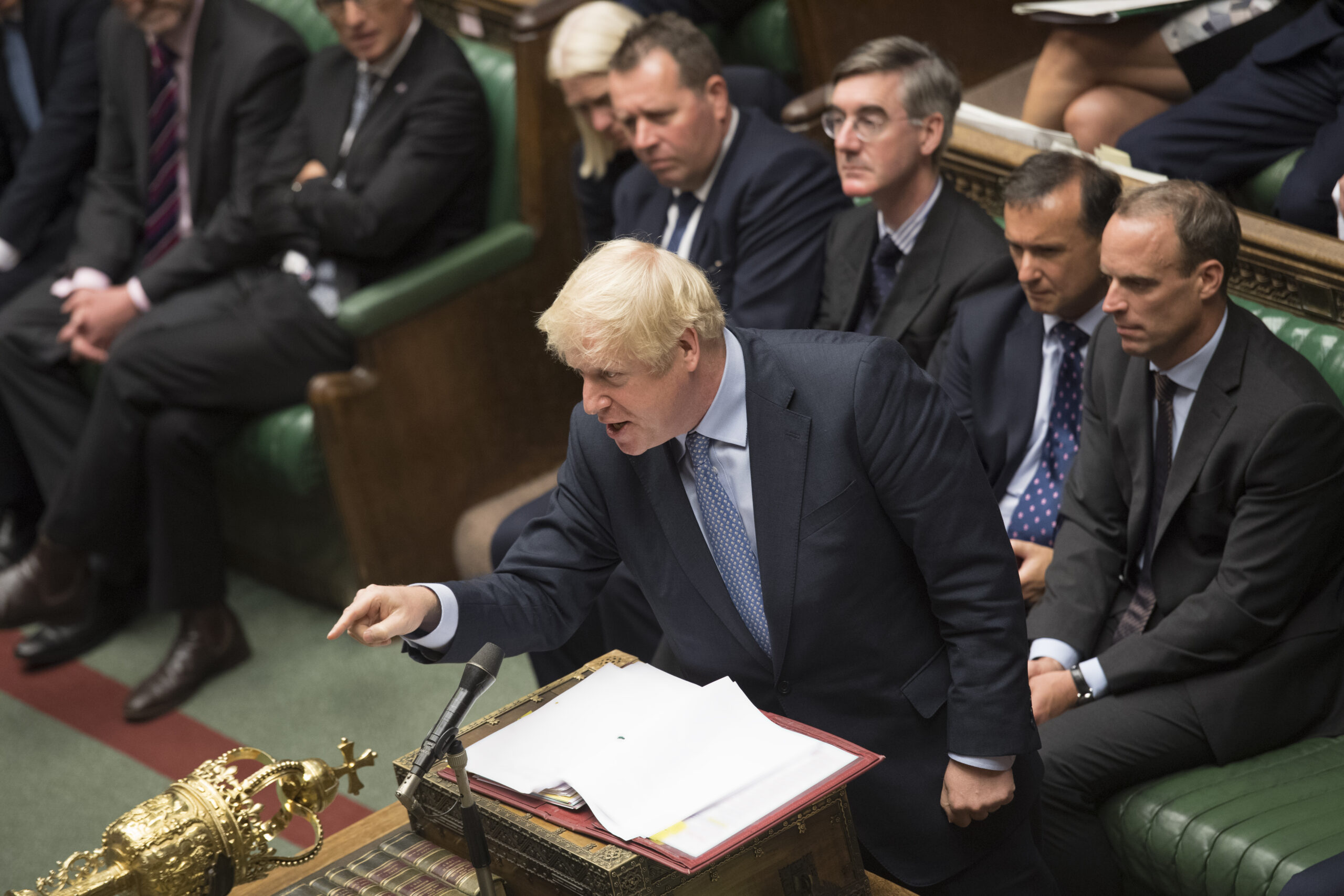
Two weeks ago, when, in what was meant to be an apologetic response to the Sue Grey Report, the Prime Minister accused the leader of the opposition of responsibility for the failure of prosecuting Jimmy Saville, I have to admit I wasn’t entirely surprised. Admittedly I was slightly taken aback, before then continuing to watch the unfolding debate, as if nothing had happened. It wasn’t until Keir Starmer was accosted by a mob outside Parliament that the true weight of what had happened hit me. Johnson had parroted an online far-right conspiracy to deflect away from his own political troubles and in doing so – whether purposefully or not – had incited hate against his political rival. These tactics, whilst common in Trump’s America, have thankfully been few and far between in mainstream British politics until now. Quite frankly we should all be appalled by the Prime Minister’s words. But are any of us really shocked anymore? Or have we just come to accept this Trumpish behaviour as a feature of our politics?
A key problem is that our democratic institutions rely on politicians displaying a certain level of integrity, and are therefore not equipped to cope with the current level of hostility projected by the Government front bench. In the UK, we lack a US-style codified constitution and rely instead on MPs adhering to conventions that dictate how they should behave in office, with one key convention in the Ministerial code dictating that Ministers who knowingly mislead Parliament should resign. Johnson has seemingly misled Parliament on multiple occasions, with the most obvious example being his insistence that “the rules were followed at all times”, when asked about alleged parties on November 13th 2020, something that was not possible given the Government guidelines at the time. Yet he lacks the integrity to resign, leaving us stuck in this weird interim, with few formal mechanisms left to punish such misconduct. Likewise, whilst MPs can be thrown out of the Commons for suggesting that the PM lied to Parliament, lies and conspiracy theories can be thrown about by ministers often with very little consequence, with parliamentary privilege protecting Johnson from any potentially liable action for his Saville slur.
The worry is that in a system where conventions are ignored and lying is left unpunished, people begin to view such actions as emblematic of all politicians, rather than a select few. Recent ministerial misconduct has seemingly rocked trust for politicians of all colours, with one study finding the percentage of respondents who feel that all politicians “are out merely for themselves” has shot up from 48% in 2014 to 63% now. The dangers of this worldview were summed up by former PM John Major on Thursday, who argued that the assumption that politicians “are all the same (…) conditions electors to condone lies as if they were the accepted currency of politics.” Thus, our expectations for what is considered “the norm” in politics are lowered, something that encourages ever more corrupt behaviour, which erodes these norms further still. We are all victims of this type of gaslighting, whether we know it or not. Put it this way, if someone had told you a year ago that Downing Street was going to be investigated by the police for potential law-breaking on 12 different occasions, would you believe them? Whereas now, if someone told you another Downing Street party was to be investigated by the Met would you even bat an eyelid?
It might be difficult to remember now but political leaders have not always lacked this much integrity. Whilst many people would not have admitted it at the time, due to the ‘uber-aggressive’ nature of the Brexit divide, there’s few now who could argue against the view that Theresa May, in her efforts to get her Brexit withdrawal agreement through Parliament, was doing what she perceived as being in the best interests of the country, even if she alienated both sides of the divide in the process. Honesty and integrity have not always been rare qualities in British politics, and quite frankly still aren’t. When looking beyond the Government’s front bench, you see plenty of examples of MPs putting these principles before political point-scoring, with a number of backbench Tory MPs calling out the PM’s Saville slur, despite the potential damage rebelling could do to their own party interests. Two of these MPs, Robert Largan and Stephen Hammond, have parliamentary majorities of less than 700 votes and have called out the Government’s ill behaviour in spite of the knowledge that if this Government falls, they could well fall with it.
In an interview four years ago, Boris Johnson joked “my strategy is to litter my career with so many decoy mistakes that nobody knows which one to attack.” This strategy seems to be working somewhat, even if it has resulted from sheer incompetence rather than a political masterplan, with the ever-growing list of Government scandals in recent months distorting our perception of political norms. But as an electorate, whatever our political colours, we mustn’t be led to believe that current examples of Government misconduct represent the new norm in British politics; if we do so, then our ability to hold our leaders accountable slips further and further away. Sometimes it helps to just take a step back and realise how unprecedented the last few months really have been. Only by doing this can we hold on to a sense of perspective that will allow us to hold our elected leaders to the high standards we should expect of them.
Image: Boris Johnson’s first PMQs (2019)// Jess Taylor, UK Parliament// CC BY-NC 2.0



Average Rating